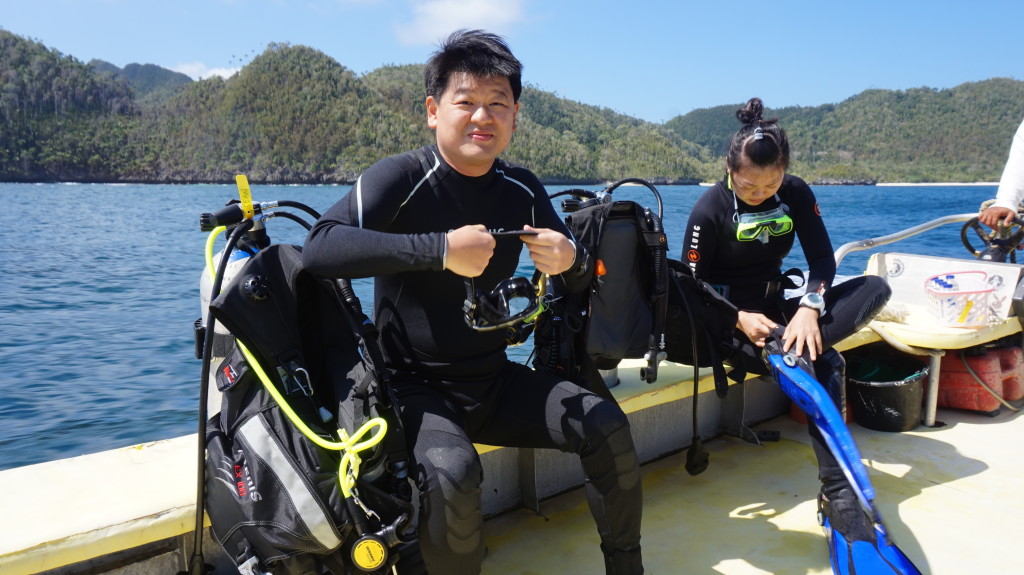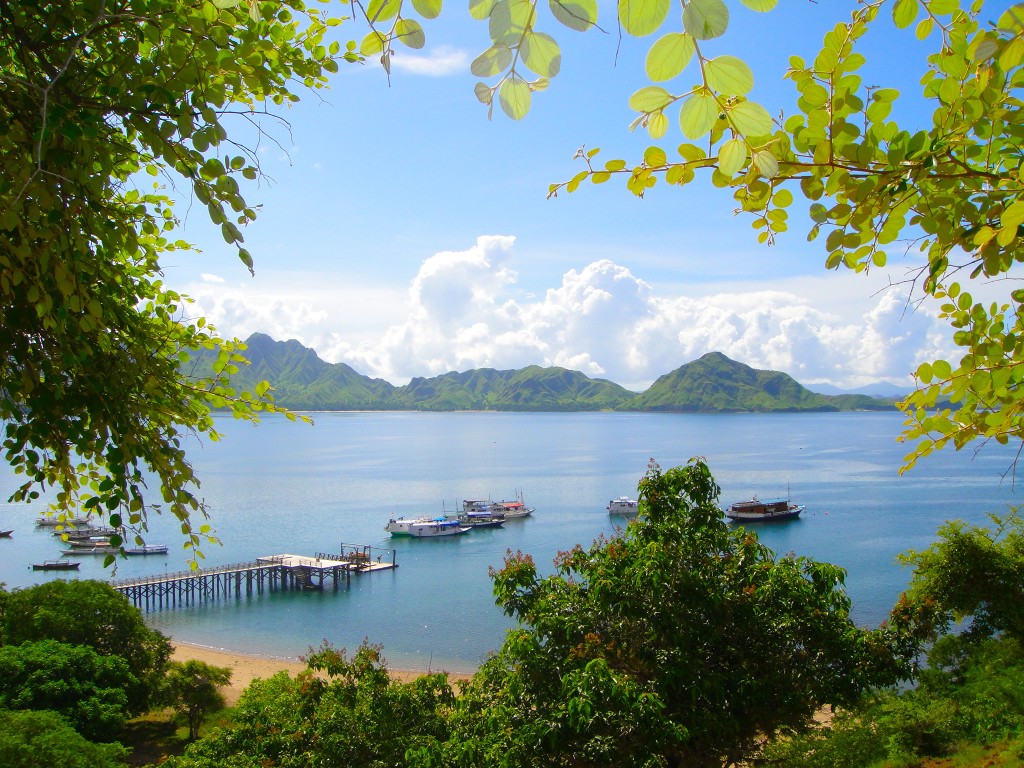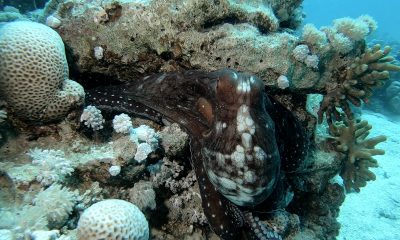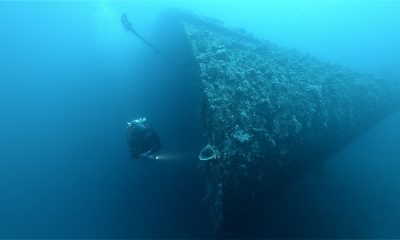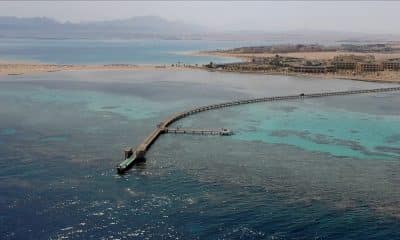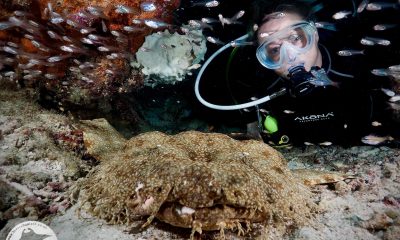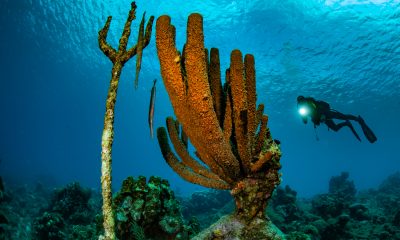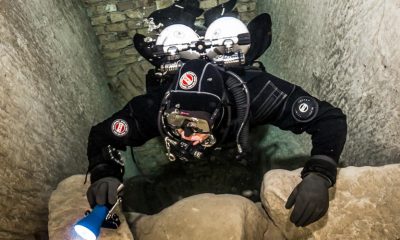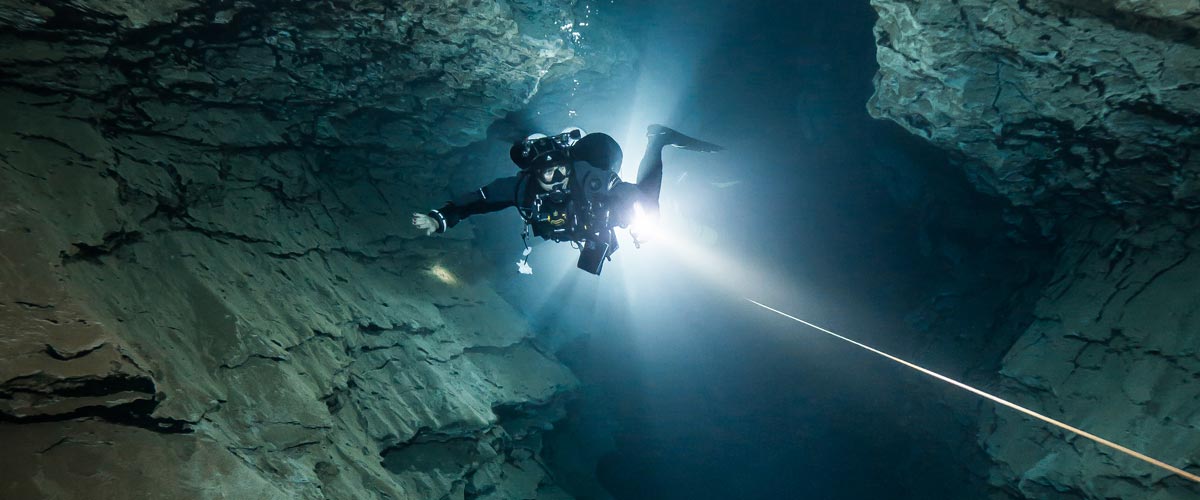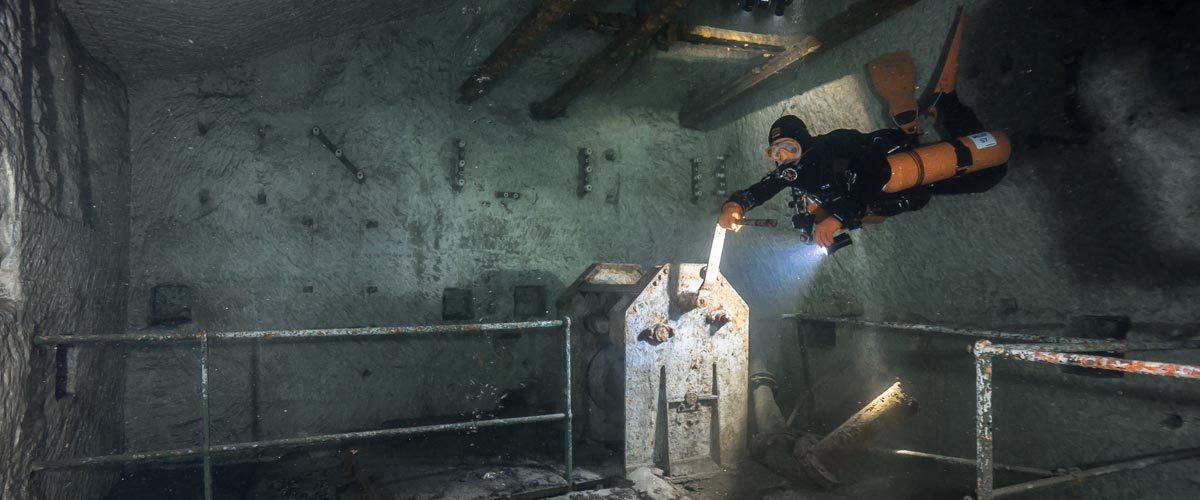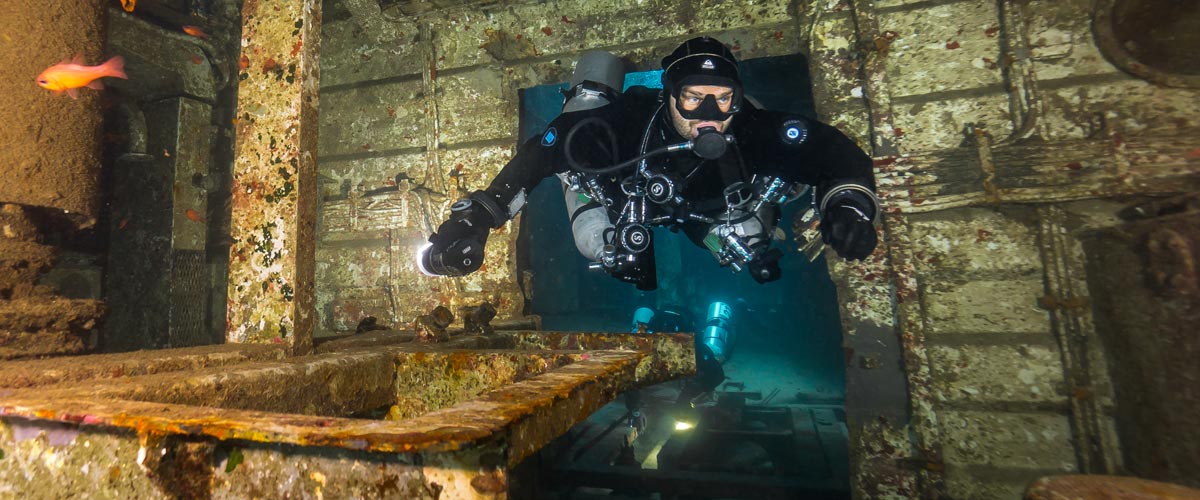Dive Training Blogs
Scuba Professional: Column No. 5
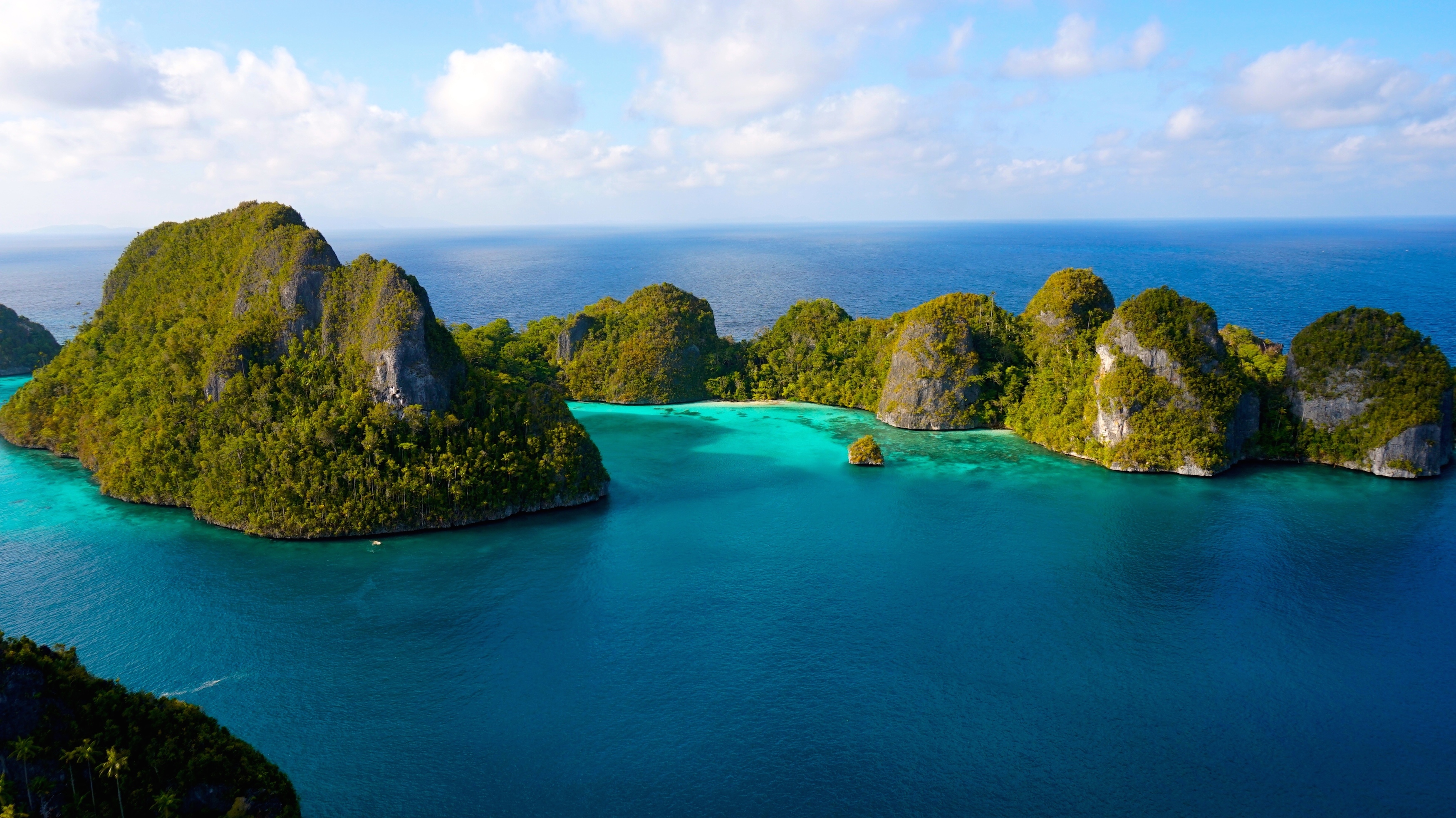
Where Diving Is New
Simon Pridmore imagines what it must be like to be a new diver in Indonesia, where, until recently, going underwater was just an impossible thing that other people did.
You have never heard of scuba diving. You know that there are people who swim underwater. You have seen them on TV and in the movies and you have wondered what it would be like. But this is not something that you ever imagined would be possible. Then one day you meet a friend for lunch and she tells you about a scuba dive that she did with an instructor while she was on holiday. Suddenly, a door you thought would always be closed to you opens a crack and you can see beyond.
After thinking about it for a long time you decide you don’t just want to dive once. You want to learn how to dive so you do it many times. You can swim but you take some lessons anyway to improve your confidence in the water. Then you look online for a dive instructor. There are no dive centres in your town. You have never actually seen a dive centre. You will have to travel to a nearby island to learn.
You are the first person you know who has signed up for a scuba diving course. For the people of your parents’ generation, diving was something that navy personnel did. It was a professional activity, not a sport. Now they know that you are going to become a diver, your family are worried about you and your friends are envious. As for you, you feel like you are embarking on an adventure that will change your life.
The First Scuba Divers
This must have been how it was for the first sport divers in the 1950s and 1960s. Before them, everyone who had ever gone underwater was doing a job. The baby boomers born in the USA and Europe in the aftermath of the Second World War were the first people ever to go under water for fun.
But in Indonesia, this is how it is right now! People from other countries have been diving in Indonesia for decades but only recently have Indonesians themselves been diving here, other than as professional divemasters and guides. For the first time, a generation of Indonesians has the economic security and free time to dive for fun.
Scuba is COOL!
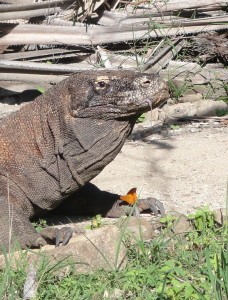 The wonders of Indonesia’s underwater world are now constantly featured in newspapers, magazines and television documentaries. Several free magazines have been published, featuring movie stars and pop idols as diving role models. Many of Indonesia’s dive gurus and industry leaders are in their twenties or thirties. Scuba is COOL!
The wonders of Indonesia’s underwater world are now constantly featured in newspapers, magazines and television documentaries. Several free magazines have been published, featuring movie stars and pop idols as diving role models. Many of Indonesia’s dive gurus and industry leaders are in their twenties or thirties. Scuba is COOL!
I visited a hotel on Java’s Sunda coast a few months ago with a group of divers. We were sitting by the pool in the evening while a film unit was shooting scenes for one of Indonesia’s most popular television soap operas. One of the crew came over and started chatting. We explained why we were there and, on hearing that we were scuba divers, he brought filming to an abrupt halt. The cast, actors and actresses famous throughout the country, all came over and bombarded us with questions about diving, saying how they were all planning to take courses. It felt like we were the stars!
World Class Diving on Your Doorstep
How wonderful must it be to start diving and then discover that some of the best diving in the world is right there on your doorstep? The vast majority of Indonesia’s 170,000 plus islands lie in the coral triangle where two massive oceans, the Pacific and the Indian, join. If you are Indonesian, places that people spend tens of thousands of dollars to visit for just a few days a year are easily accessible to you pretty much any time you wish. Do you fancy a long weekend in Komodo? You could leave work in Jakarta on Friday evening and be diving off Cannibal Rock the next morning. How about Christmas in Raja Ampat? Why wait until Christmas? There are overnight flights to Sorong from Jakarta every night of the week.
Positive Benefits
On a more sober note, the environmental and conservation consequences of so many Indonesians learning to dive can only be positive. The country has an appalling conservation record on land and sea, with plenty of well-meaning laws protecting the environment but very little implementation or enforcement. A new generation of divers could well be a powerful force in turning the situation around.
Living in Indonesia and seeing scuba diving through the eyes of newcomers to the sport is refreshing. It is wonderful to witness a whole society that is discovering the joys of dipping their heads below the surface of the sea for the first time.
Comedian Dave Barry once wrote: “when you finally see what goes on underwater, you realize that you’ve been missing the whole point of the ocean. Staying on the surface all the time is like going to the circus and staring at the outside of the tent.’
Welcome to the circus, Indonesia!
Read more from Simon in his latest release Scuba Professional – Insights into Sport Diver Training & Operations and his bestselling book Scuba Confidential – An Insider’s Guide to Becoming a Better Diver, both available from Amazon in paperback and e-book versions.
Blogs
Intro to Tech: What is it about?
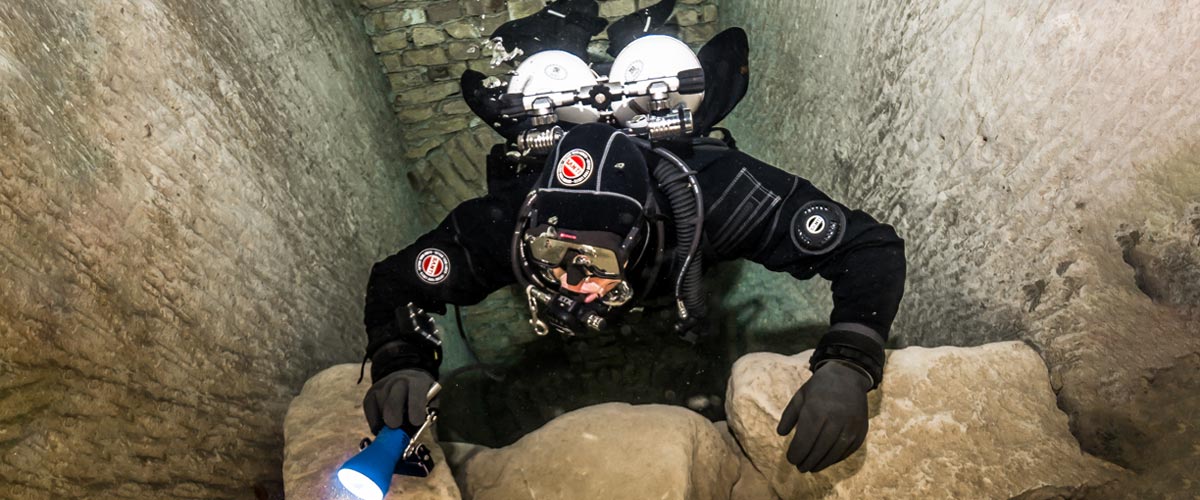
Article by José Pablo Mir
Pictures by Cezary Abramowski
The world of technical diving is exciting. It opens the door to new sites, depths, and bottom times. More importantly, it opens our minds to a new way of planning, facing, and experiencing dives, even those not purely technical.
Becoming a technical diver is a process, and like in other aspects of life, we should find the proper entry point that suits us best based on our knowledge and experience. The Introduction to Technical Diving course from TDI -the world’s largest and most recognized technical diving teaching organization- is the best option for divers who have yet to gain experience in the fundamental aspects of this new practice. The course’s content and its embrace of new techniques and technologies make it possible to acquire a solid foundation to learn and gain experience in this practice properly.
Becoming a technical diver is not something that happens overnight, whether deciding to become one or receiving a certification card stating we are now technical divers. It is a slow process extending farther away than any introductory course. It requires effort and dedication. But it will bring us satisfaction from day one -or two.
It is a matter of mentality
First, we must understand and accept that technical diving, involving greater depths, longer bottom times, exotic gases, virtual or real ceilings, and more, comes with higher levels of risk than the sport diving we have been practicing until now.
Although this discussion usually starts with a warning about risks, as I’ve done in the previous sentence, our practice is not a game of chance.
Technical diving is a rational activity that requires maturity and good judgment, and we will put everything into ensuring that each dive is a successful one -meaning we return from it safe and sound. With this understanding, we will strive to establish a mental attitude more aligned with our practice and its realities.
This new “technical diver” mindset we will develop will lead us to be more cautious in our executions, more analytical in our plans, more rational in our strategies, and more detailed in our procedures.
Experience will keep teaching us to know ourselves better, to keep our anxiety and other emotions under control, and to manage our impulses. Over time, our senses will sharpen, and we will be more attentive to the particulars of the situation we find ourselves in.
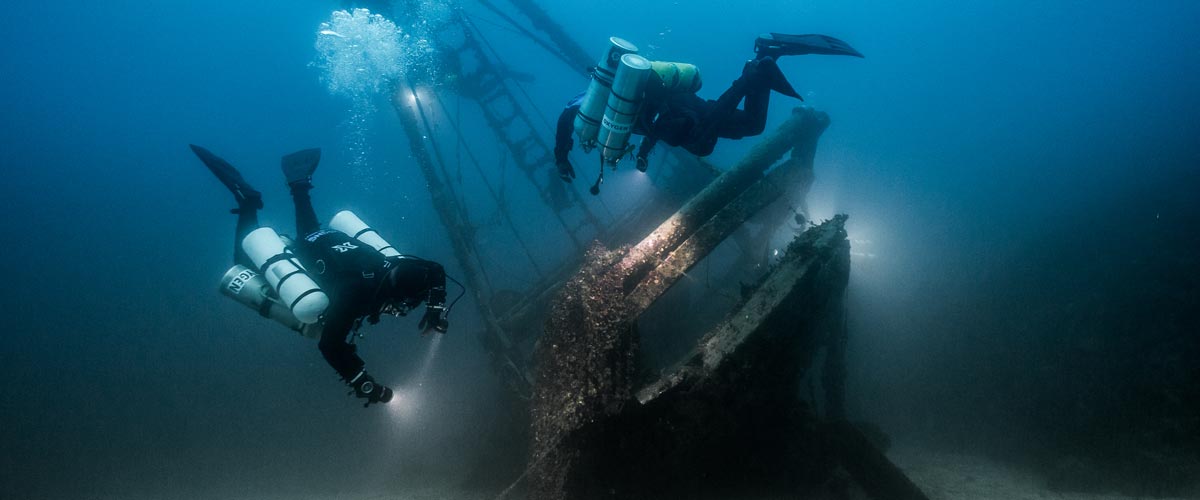
Strategies and procedures
Our strategies, those broad guiding lines tracing the path to follow, from how to approach planning to where, with what, and how we are willing to get there, will be more specific and more practical. Not because they magically become so, but because we will consciously and deliberately frame them that way.
We will establish clear, concise, and realistic procedures. Not only for the undesirable situations that may present themselves but also for those that are part of our dive objectives.
Even though, as technical divers, we often use equipment different from what we were previously accustomed to, it is essential to note that the gear does not make the diver. In a way, we could consider such equipment as the necessary tools to implement what our goal seeks to achieve, according to our strategies and procedures.
Technique plays an important role
We must put our greatest effort into learning and perfecting the different techniques we will be acquiring. Buoyancy, trim, propulsion, cylinder handling, deploying DSMBs and lift bags, valve drills, and more are essential skills we must begin to master to progress in our art. What we cannot do, when we need to do it, can harm us.
Our techniques must be effective and achieve the purpose for which they were devised. But they must also be efficient and require the least resources possible, including the time they take and the effort they demand. Effectiveness and efficiency will prevail over beauty and other considerations that may come to mind, although none of them should be mutually exclusive. A technique executed efficiently and effectively tends to have an inherent beauty.
Refining techniques is a lifelong mission. Some of them will be easy to master from the go; others, on the other hand, will be our life mission and will require many repetitions just to resemble the idea we have in mind of how they should be executed.
We must consider the environment
Our learning, the needs and musts of the practice we engage in, the experience we gradually gain, our strategies and procedures, and even our equipment and tools change with the environment.
Diving in the ocean, everything about us must be suitable for ocean dives. Conditions there rarely emulate those found in a pool, lake, or river. Variable winds and currents, greater depths, visibility conditions, other divers with uncertain skills around us, marine life, maritime traffic, distance from the coast, and many other factors add complexity and uncertainty.
It is never necessary to master the pool on the first day, but planning and aspiring to gradually cope with the ocean’s conditions is essential.
The cost of good training
We are aware that our resources are often scarce in relation to the possibilities of use we could give them if they were not. To a greater or lesser extent, we are part of the economic reality in which we are embedded.
Fortunately, the cost of good technical diver training is not an entry barrier. Comparing training and equipment costs, we see that the former are generally lower. Yes, lower cost for personalized service, essential to our future
performance and safety, than for a series of mass-produced products that are mere, albeit necessary, tools for an end.
The value of good training
The value of the training we received encompasses a range of characteristics, from emotional and methodological to technical and technological. TDI and its Introduction to Technical Diving course offer a deep and modern approach, with a teaching strategy that aims to create thinking divers, not merely obedient ones.
As technical divers, our knowledge is our primary tool. In this type of activity, what we don’t know can harm us.
Is this course optional?
Unfortunately, the fact that this Introduction to Technical Diving course is not a prerequisite for any subsequent training is an invitation to consider it optional. And we all know what usually happens to “optional” under budget constraints.
However, this course should be seen as optional only by those divers who are somehow familiar with the use of technical equipment, who have a mindset more in line with the requirements of this type of diving, who plan and execute the dives the proper “technical” way, who know their gas consumption rate, who are not intimidated by non-decompression tables, who feel comfortable using their dive computers, and know the techniques and have at least an acceptable level of buoyancy, positioning, and propulsion. Those can go straight to a more advanced training course, such as TDI’s Advanced Nitrox.
We must ask ourselves whether or not we are in that group.
Remember our goal: to have fun
Recreational diving is our passion. Jumping into the water carrying heavy equipment and having properly dotted our I’s and crossed our T’s have only one ultimate goal: fun. This is the activity we have chosen as a hobby. We must enjoy it; it must give us pleasure and make us vibrate.
Having a good time is not optional!
Blogs
Four opportunities to go pro in 2024 with Dive Friends Bonaire
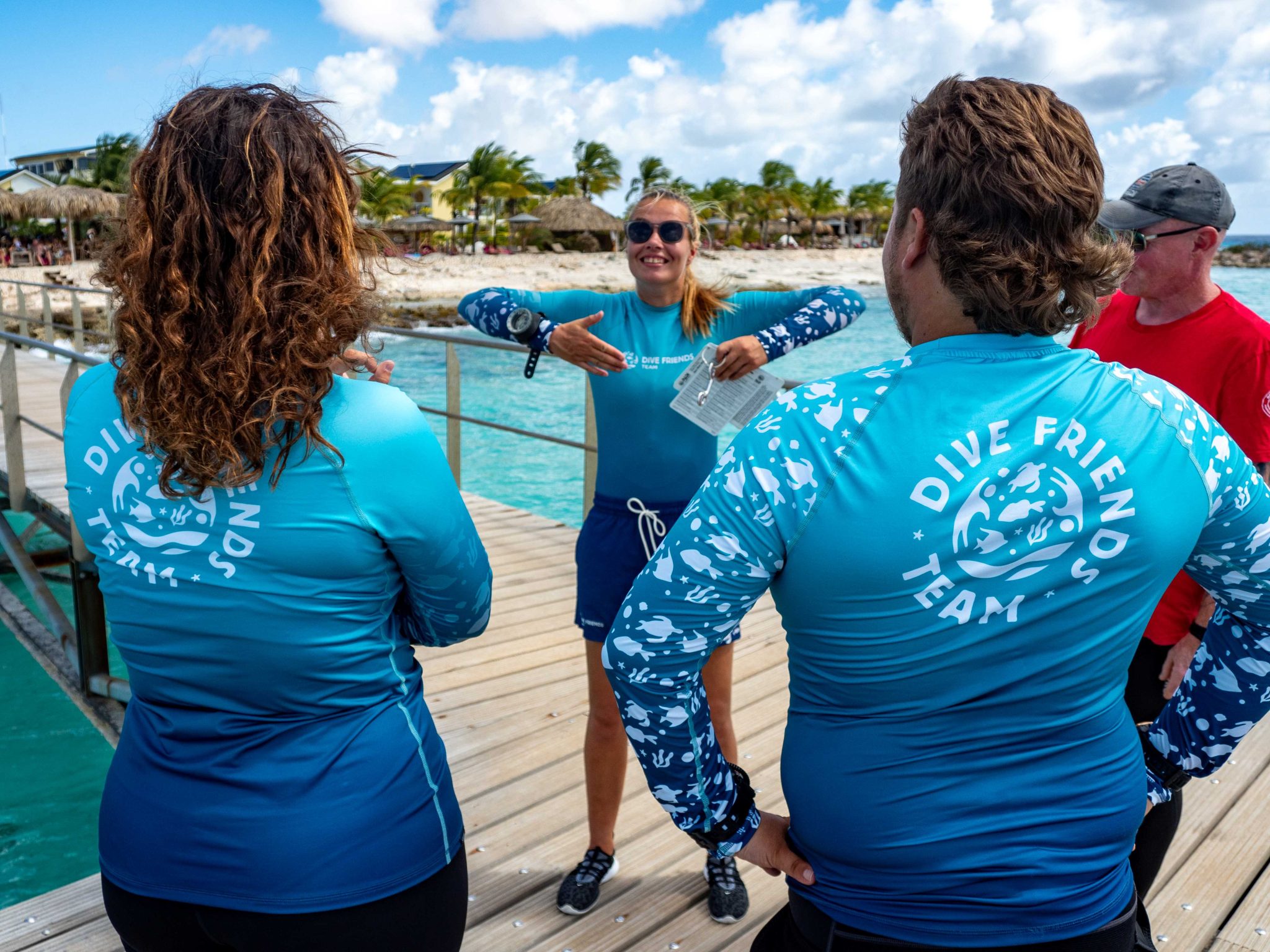
Dive Friends teaches the Instructor Development Course (IDC) several times a year to students who are eager to share their passion for diving with the world.
Dive Friends is known for the personal approach throughout the course. Their in-house course director will lead the students through every essential step, mentoring them to achieve their fullest potential as a dive instructor.
Applications for the following IDC start dates are now open:
- 12 April
- 5 July,
- 20 September
- 29 November
Partnership with Casita Palma
If the student opts for the IDC-Deluxe or IDC-Supreme package, their accommodation will be arranged for them at Casita Palma. This small and quiet resort is within walking distance from Dive Friends Bonaire’s main dive shop location and has everything you need to relax after an intense day of IDC training. Breakfast is included, so the student will always be fuelled and ready for their day.
Contact Dive Friends Bonaire’s Course Director Eddy for more information: coursedirector@divefriendsbonaire.com.
-

 News3 months ago
News3 months agoHone your underwater photography skills with Alphamarine Photography at Red Sea Diving Safari in March
-

 News2 months ago
News2 months agoCapturing Critters in Lembeh Underwater Photography Workshop 2024: Event Roundup
-

 Marine Life & Conservation Blogs2 months ago
Marine Life & Conservation Blogs2 months agoCreature Feature: Swell Sharks
-

 Blogs1 month ago
Blogs1 month agoMurex Resorts: Passport to Paradise!
-

 Gear News3 months ago
Gear News3 months agoBare X-Mission Drysuit: Ideal for Both Technical and Recreational Divers
-

 Blogs2 months ago
Blogs2 months agoDiver Discovering Whale Skeletons Beneath Ice Judged World’s Best Underwater Photograph
-

 Gear Reviews2 months ago
Gear Reviews2 months agoGear Review: Oceanic+ Dive Housing for iPhone
-
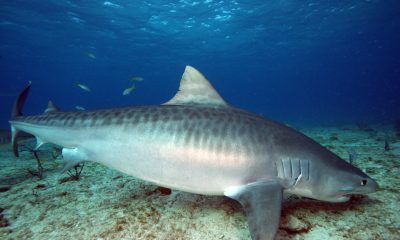
 Blogs3 months ago
Blogs3 months agoThe Thrilling Encounter with Tiger Sharks at Beqa Lagoon’s ‘The Colosseum’ with Coral Coast Divers


